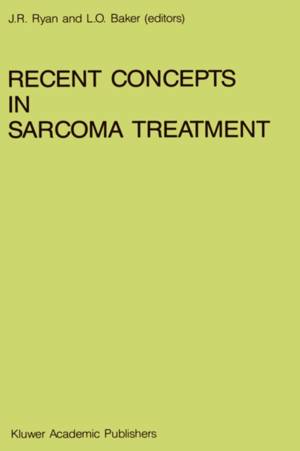
- Afhalen na 1 uur in een winkel met voorraad
- Gratis thuislevering in België vanaf € 30
- Ruim aanbod met 7 miljoen producten
- Afhalen na 1 uur in een winkel met voorraad
- Gratis thuislevering in België vanaf € 30
- Ruim aanbod met 7 miljoen producten
Zoeken
Recent Concepts in Sarcoma Treatment
Proceedings of the International Symposium on Sarcomas, Tarpon Springs, Florida, October 8-10, 1987
€ 279,45
+ 558 punten
Omschrijving
There have been significant advances in the treatment of sarcomas in the past several years. Further, different clini- cal treatment programs are being advocated in different areas including surgery alone, surgery with preoperative or post- operative chemotherapy, surgery with different radiotherapy modalities, with each investigator espousing his own treat- ment program. On the other side, there is the question of whether these treatment programs are offering better results or whether the natural history of sarcomas has changed. The International Symposium on Sarcomas was held at Innisbrook Resort, Tarpon Springs, Florida, October 8-10, 1987. This was the first international symposium to date involving all of the disciplines treating sarcomas including pathologists, orthopaedic surgeons, general surgeons, medical oncologists, pediatric oncologists, and radiation oncol- ogists. The Symposium brought together a number of special- ists working in the clinical field of sarcomas for a presen- tation of their specific treatment programs and their results. The presentations were followed by panel discussions to stimulate educational debate as to the different forms of treatment for sarcomas and to formulate some conformity in control of disease, control of spread, and ultimate function for the patient. James R. Ryan, M.D.
Specificaties
Betrokkenen
- Uitgeverij:
Inhoud
- Aantal bladzijden:
- 328
- Taal:
- Engels
- Reeks:
- Reeksnummer:
- nr. 55
Eigenschappen
- Productcode (EAN):
- 9780898383768
- Verschijningsdatum:
- 31/05/1988
- Uitvoering:
- Hardcover
- Formaat:
- Genaaid
- Afmetingen:
- 156 mm x 234 mm
- Gewicht:
- 653 g

Alleen bij Standaard Boekhandel
+ 558 punten op je klantenkaart van Standaard Boekhandel
Beoordelingen
We publiceren alleen reviews die voldoen aan de voorwaarden voor reviews. Bekijk onze voorwaarden voor reviews.










